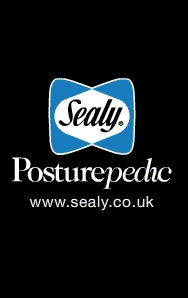“Just because you have lost your ability to walk unaided, doesn’t mean you have lost your sense of style”, says Robin Sheppard, co-founder of Bespoke Hotels.
Having spent most of the 21st century recovering from a rather debilitating illness, maintaining a semblance of style has been vital.
Whether it’s a thoughtful design flourish in the disabled loos, a discreet access ramp, or simply a thoughtful and conscientious member of staff, I can assure you it goes a long way.
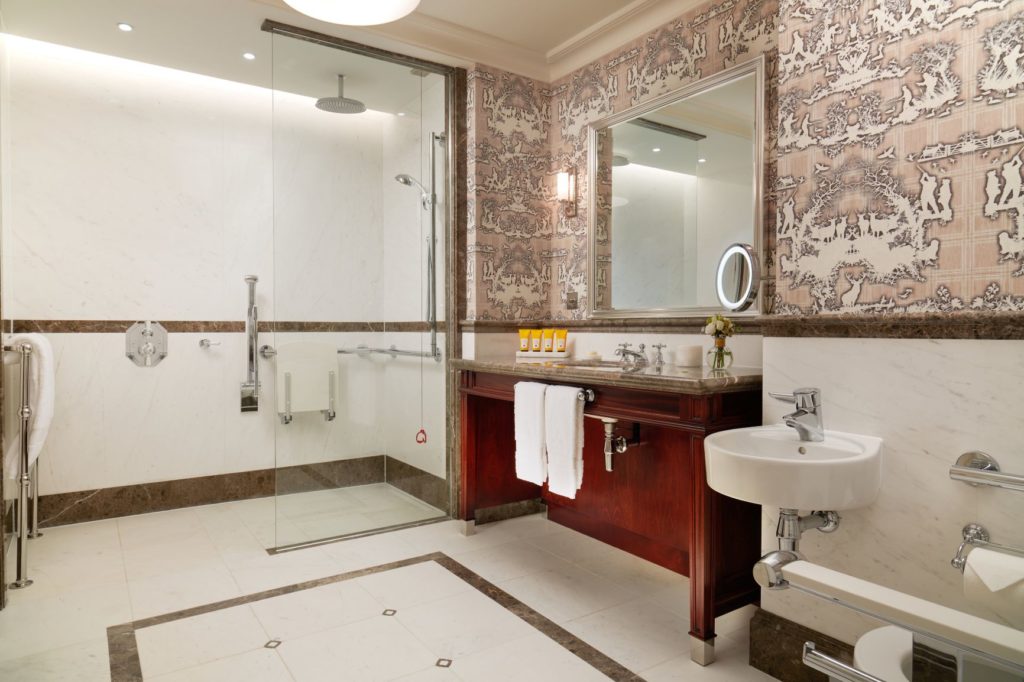
Image above: Bathroom, Adare Hotel, taken by photographer Jack Hardy
Sadly, the way in which hotels, restaurants and bars provide for disabled guests is at best re-actively slow, and at worst outright hostile.
While we may have provision through the law to ensure compliance in the physical fit out of disabled spaces, there is often no provision for emotional or aesthetic intelligence.
The results can be seen in over-medicalised bedrooms and bathrooms with gloomy fixtures and fittings. Sadly, the defining trend is a singular lack of wit and panache.
A striking statistic in this regard is the fact that 43% of able-bodied guests refuse a disabled room when offered at check in, with a further 40% asking for an alternative.
A sad indictment of society, perhaps. But an equally damning report on the current state of accessible design.
A personal vision of mine involves the words ‘I would like an upgrade to a disabled suite please’ – something the vast majority of travellers will never have contemplated.
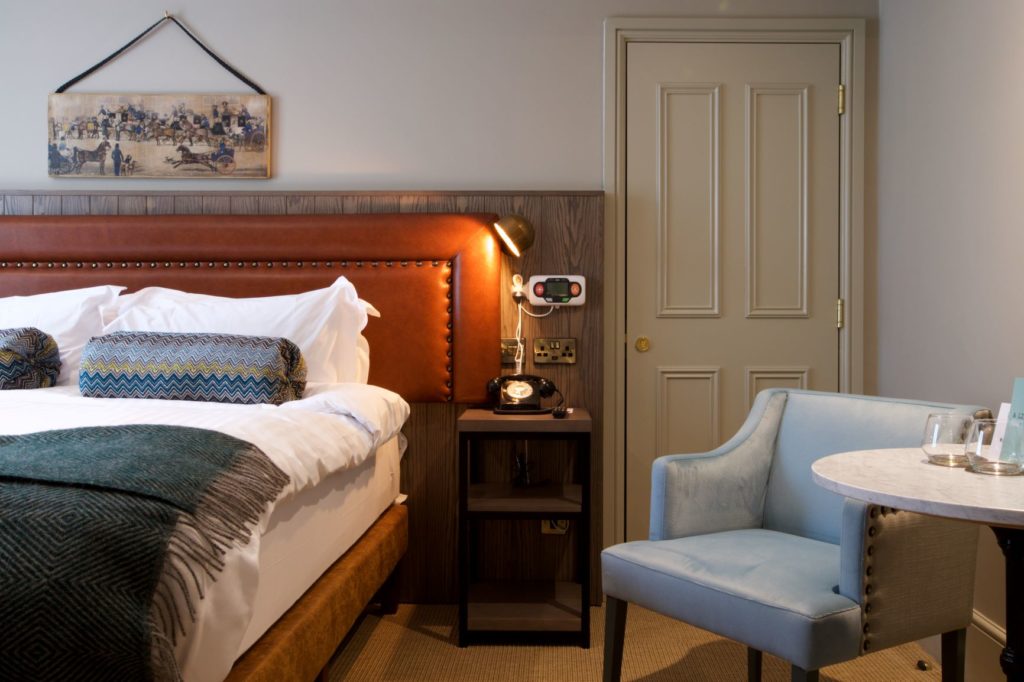
Images above and below: The White Horse Dorking
There are two imperatives here, both moral and commercial. The moral point is obvious: we should all be treated with the same respect and care, whether able-bodied or otherwise.
The commercial aspect is even more obvious, and yet largely unseen.
Why build bedrooms that, when full, need to be sold to any guest? We know that 83% of able-bodied guests will feel they have been somehow “downgraded” to a disabled room.
Discounting invariably follows by way of apology, but this need not be the case.
The industry is missing a trick by restricting its ability to charge fully, while irritating its main customer base into the bargain.
Before even considering how the disabled guest might feel.
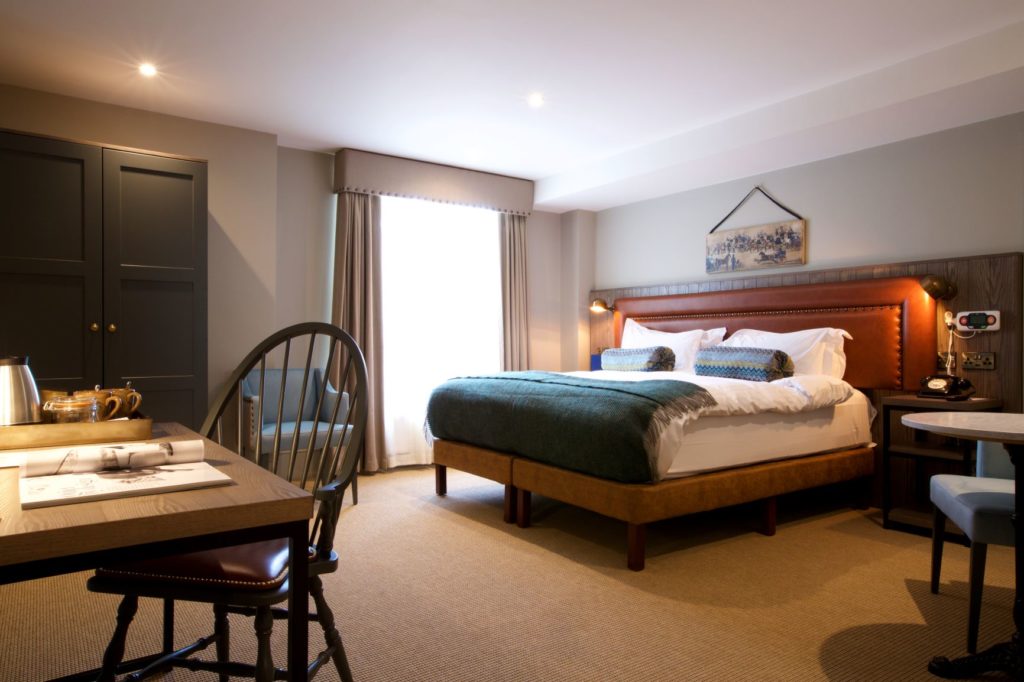
For my part, I was struck down with an unusual illness on Christmas Eve of 2004 named Guillain-Barre Syndrome (don’t worry, I hadn’t heard of it either).
It quickly side-lined my immune system and paralysed me from the neck down.
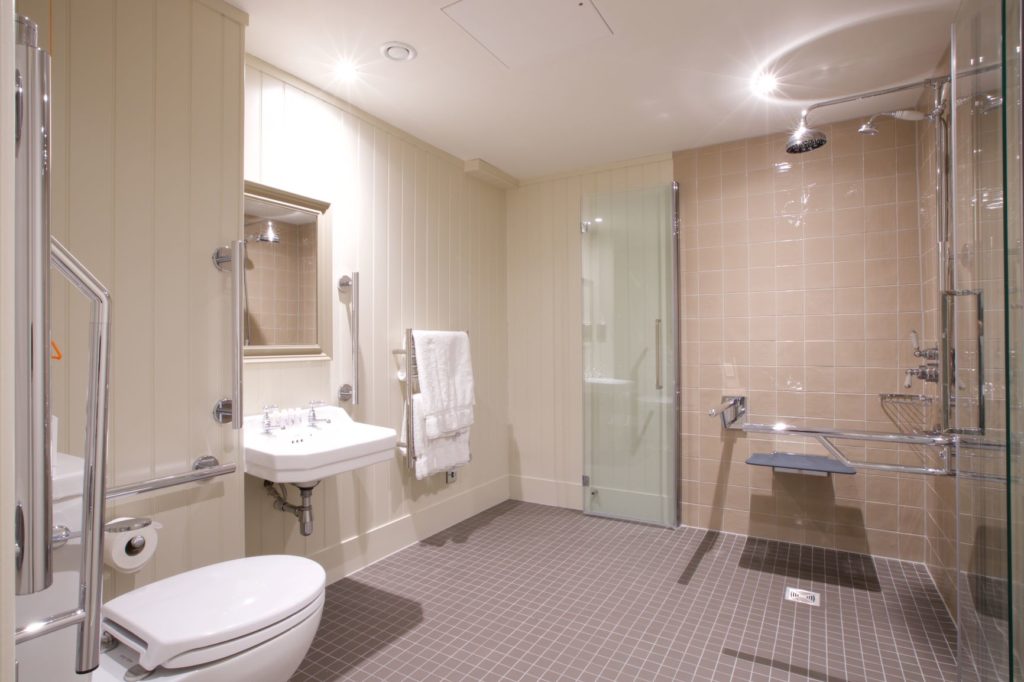
It was a tough place to be: stapled to an intensive care bed, unable to move or breath unaided.
But there was a silver-lining as the illness grants many the chance for recovery.
After ten months of naval gazing and a further year of relentless physio, I was fortunate enough to get back to work.
Saddled with permanently reduced energy and walking skills, my powers of observation were about the only faculty to have become stronger in the process.
It became obvious from my wheelchair vantage point how uncomfortable able-bodied people are in the company of those in wheelchairs.
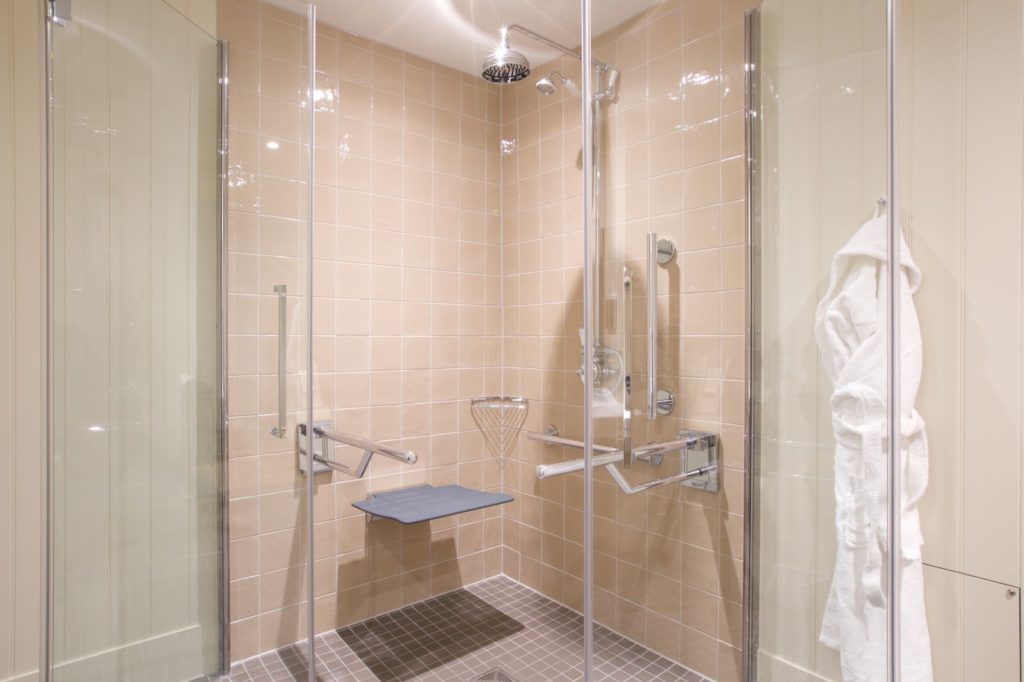
Its true, people talk to the person pushing the wheelchair rather than the person in it, stemming largely from a blithe assumption that the ‘wheelchairee’ is incapable of speaking for themselves.
So I’ve done a few hard yards as a consumer of disability and become aware of how marginalised an increasingly large proportion of the population are institutionally being made to feel.
Armed with this experience, I was introduced to many evangelists and discovered a common desire to better the disabled lot.
Thus the Blue Badge Access Awards (BBAA) was conceived in tandem with the fine work of Leonard Cheshire Disability, alongside the tireless campaigning of Fiona Jarvis (she of the lead quote above).
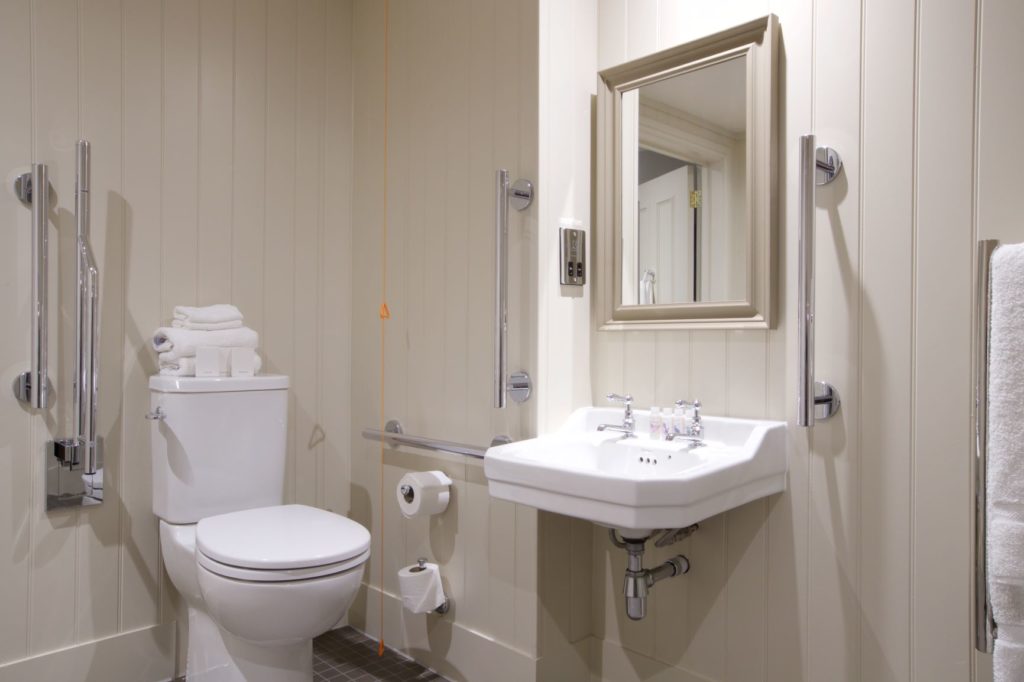
Now in its third year, BBAA has fostered support from diverse sources ranging from the House of Lords to RIBA, the Design Council and Channel 4, and business partnerships with Dyson, HEWI, and Marshall CDP.
We have even gained recognition from Her Majesty’s Government. Indeed, I am now fortunate enough to stand as the Hospitality Sector Champion for the Disabled.
Thanks, must be given, for the sterling support of Baroness Grey-Thompson, journalist Sophie Morgan, Baroness Celia Thomas, Lord Borwick and Lord Rogers.
So, allow me to throw down the proverbial gauntlet… What do the typewriter, the telephone, the remote control, and the office scanner have in common? They were all designed to make things easier, and more accessible, for a disabled person.
The first typewriter was built to help a blind Italian countess write legibly, while Alexander Graham Bell, who invented the telephone, had both a wife and mother who were deaf.
The remote control was created to make life easier for people with limited mobility, with today’s office scanners evolving from technologies created to make talking books for the blind.
Designing for disabled individuals leads to inclusive design as these solutions eventually become conveniences for mainstream groups. You just need someone to champion the cause.
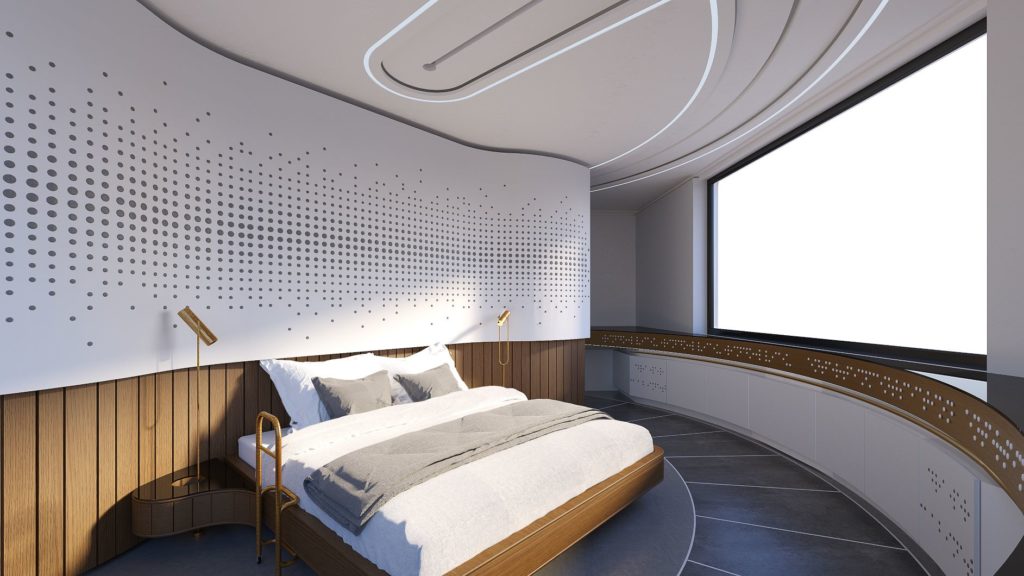
Accessibility room of the future?
It’s time to empower colleagues across hospitality businesses to champion access; to remove barriers that exclude; to access a market worth over $8 trillion globally; to see what benefits for disabled and elderly customers are waiting to be discovered; and, in turn, to realise how this can benefit all of our guests and staff alike.
Whether it be at senior, board, or head of department level, the formula for measuring and sharing success urgently needs to change.
Currently, this is based mainly on examining forecasts and profit and loss accounts, perhaps with a bit of health and safety thrown in.
Businesses need to also measure and understand their impact in relation to their carbon footprints, sustainability and inclusivity.
Access should sit permanently on the agenda and every hotel, restaurant and bar business should appoint an access champion within their teams.
That person could be the GM or the pot-washer, it doesn’t matter which.
The contents of our hearts and minds is what counts.
Written exclusively for GS Magazine by Robin Sheppard.
Robin Sheppard has been an hotelier for 40+ years and co-founded Bespoke Hotels in 2000, which has subsequently grown into the UK’s largest independent hotel group and now boasts over 200 properties, spanning the length and breadth of the country and overseas. Robin’s greatest achievement has been to fight back from Guillain-Barre Syndrome which completely paralysed him from the neck down, requiring relentless physiotherapy to regain mobility. A Solitary Confinement documents this journey – the proceeds of which are given to GAIN, the UK charity offering support sufferers of Guillain-Barre, where he is a Trustee.






